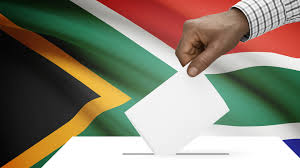
ANATOMY OF A REVOLUTIONARY MOVEMENT
On the 23 September 2024 Professor Koos Malan wrote a series of three articles published in Afrikaans in Netwerk 24 and subsequently translated into English and published in NEWS 24. These articles were published under the heading “THE ANC’s PARTIAL LOSS OF POWER”
In these articles Professor Malan draws certain conclusions which are a serious distortion and misrepresentation of ANC policy regarding the National Democratic Revolution – Transformation of Society and the Role of the state. The positions by Professor Malan cannot be allowed to go unchallenged.
James De Fronzo in his work “REVOLUTIONS AND REVOLUTIONARY MOVEMENTS” defines a “SOCIAL MOVEMENT” “as a persistent, organized effort by a relatively large number of people either to bring about social change or to resist it.”
Revolutionary Movements must always be seen within the context of the environment in which they take root as well as the circumstances and conditions which give rise to them.
Often, revolutionary movements are the products of unbearable conditions imposed upon a group of people by those who exercise power over them.
Sometimes people may believe that suffering and living in abject poverty is their lot and there is nothing that can be done about it.
However, a cohort of revolutionary, courageous and visionary leadership emerges from within society to challenge the existing order or status quo and gives rise to hope and the realisation that it is not the correct order of things for people to endure suffering.
The motive force of all revolutionary movements is that the existing order of things is neither immutable nor unalterable but can be changed.
This is true because the oppressive order is the imposition of the will of others over the majority – it only takes the majority to realise that the imposed will can be overthrown and be replaced by a more just and egalitarian system.
Naturally the beneficiaries of the old order will organise themselves or distort the intentions of the revolutionary movement in order to maintain and to perpetuate the status quo. They are therefore the representatives of the counter revolutionary forces whose aim is to defend the prevailing status quo by all means possible.
It is not strange that Professor Koos Malan writes in the manner he does – clearly vilifying the African National Congress and extolling with great admiration the virtues of the D.A party as the saviour of the people of South Africa.
From his argumentation and his admiration of the capacity of the D.A in government he has placed himself squarely within the category of individuals who would prefer that the apartheid old order and its representatives in whatever form they present themselves should be restored in South Africa albeit under a different guise.
CONDITIONS OF POVERTY – INEQUALITY AND UNEMPLOYMENT REMAIN UNCHANGED

The fact remains that the conditions of poverty, inequality and unemployment remain unchanged which are the legacy that apartheid bequeathed to the new democratic dispensation. The apologists and denialists of the atrocities of apartheid are quick to retort that apartheid cannot be blamed forever. Yet they deliberately ignore that the inequalities and institutionalised oppression was the product of centuries of colonial domination.
This, needless to say, cannot be changed in just thirty years of democracy. It is an undeniable historical fact that the majority of the people of South Africa have suffered untold misery under a system that discriminated against them and deprived them of the opportunity to participate in institutions of power, deprived them of education and job opportunities under the job reservation laws.
It is also an undeniable fact that the system of apartheid is an anti-thesis of democracy and could not be allowed to continue. The objective of the revolutionary movement was and remains the dismantling of these structures and institutions of apartheid colonialism. The democratic dispensation – must transform these structures and institutions of oppression and replace these with democratic institutions whose purpose is to serve the interests of the people. This has been and continues to be the mission and vision of the ANC under the NATIONAL DEMOCRATIC REVOLUTION.
It is a gross misrepresentation of the NATIONAL DEMOCRATIC REVOLUTION policy of the ANC that is presented by Professor Malan when he writes about Transformation and the National Democratic Revolution that:
“its declared goal of transformationism, involving centralist party control over all sectors of society – (the so-called national democratic revolution)” and “The licentious platform of unbridled one-party dominance of the preceding thirty years is no longer available.”
The insinuation here is that during the past 30 years of its rule the ANC usurped power “unbridled one party dominance.” This, as everybody knows was an outcome of a democratic process in which the people expressed their support and confidence in the ANC through their vote.
THE ANC WAS ELECTED INTO POWER
The ANC was elected into power during these 30 years and it did not impose itself on an unwilling society as was the case with the apartheid regime.

Throughout its existence the ANC has never hidden the revolutionary character of the movement. Revolutionary because its aims and objectives as defined in the NATIONAL DEMOCRATIC REVOLUTION were not reformist in character.
Its aims and objectives have been and continue to be the revolutionary transformation of society and bringing about a non – racial, non – sexist and egalitarian society.
In defining the content and revolutionary character of the ANC – once again we borrow from DeFronzo’s definition:
A revolutionary movement… is a social movement in which participants strive to drastically alter or totally replace existing social, economic, or political institutions.
DeFronzo, James. “REVOLUTIONS AND REVOLUTIONARY MOVEMENTS” Avalon Publishing. Kindle Edition.
This is truly a distinguishing feature and character of a revolutionary movement. It defines itself completely as an antithesis of the existing order – its ideological orientation is completely different and opposed to the existing order and seeks a complete and irrevocable change of the existing order.
In the case of the African National Congress – the aims and objectives, the aspirations of a new dispensation is clearly spelled out in the Freedom Charter.
By their very nature and content – the demands enunciated in the Freedom Charter place the ANC squarely in the arena of a revolutionary movement because the demands of the Freedom Charter are not reformist but revolutionary. The constitution of the Republic bears testimony to this when it declares in its preamble that:
We, the people of South Africa, Recognise the injustices of our past; Honour those who suffered for justice and freedom in our land; Respect those who have worked to build and develop our country; and believes that South Africa belongs to all who live in it, united in our diversity
It continues to impose this injunction on the democratic state:
Heal the divisions of the past and establish a society based on democratic values, social justice and fundamental human rights; (and)
Lay the foundations for a democratic and open society in which government is based on the will of the people and every citizen is equally protected by law;
Improve the quality of life of all citizens and free the potential of each person;
The struggle to achieve these goals are identified as the National Democratic Revolution (NDR).
‘National’ here relates to the fact that the oppressed in the Settler-Colonial State had to fight for their national liberation. The ‘national question’ in such a State is resolved by the liberation of the oppressed.
In our case, a seminal moment in the resolution of the national question was the end of white minority rule as signified by the 1994 Elections.
Our own struggle to defeat the Settler-Colonial State consciously sought to defeat two prominent features of this State, these being:
- the systemic oppression of the black majority; and,
- the denial of the democratic rights of that majority.
This is what accounts for ‘democratic’ in the National Democratic Revolution (NDR).
In this context, it is very important to understand that, in summary, the strategic task of the NDR is the creation of a democratic, non-racial, non-sexist and prosperous South Africa based on the eradication of the legacy of colonialism and apartheid, both of them an expression of the functioning of the Settler Colonial State.
How Professor Koos Malan comes to the conclusion that “its declared goal of transformationism, involving centralist party control over all sectors of society – (the so-called national democratic revolution)” is indeed not only puzzling but mischievous because as a Professor, Malan ought to know better.
But this is by no means accidental it is the same narrative that seeks to distort the NATIONAL DEMOCRATIC REVOLUTION and represent it as being inspired by the Communist Party of the Soviet Union (CPSU) and the ally of the ANC the Communist Party of South Africa. (SACP)
When he gave evidence at the Truth and Reconciliation Commission (TRC), the former Chief of the SADF, Gen Constand Viljoen said among other things:
Most revolutionary wars were thus not only wars of liberation in Africa but also proxy wars for the superpowers…So, in this way the USSR was for us a conventional threat, a real physical conventional threat because they were actually present, and they had their proxy agents present in Southern Africa…
In April 2022, the prominent Afrikaner intellectual, Hermann Gilliomee, published an article entitled, ‘WHEN THE ANC LOST ITS BRAIN’.
Unashamedly, Prof Giliomee says that the ANC ‘the ANC lost its brain’ when the Soviet Union ceased to exist. Here is some of what he wrote:
The ideology of the SACP was very close to that of the Soviet Union and that the SACP dominated the ANC-SACP Alliance during the years of Struggle…
It is clear that the paralysis that has seemed to grip the ANC government is due largely to the decline of communism as an ideology and the cessation of the flow of expert advice from Moscow…
President Cyril Ramaphosa’s appeals to his voters sound increasingly like calls to stragglers who are lost and without guidance.
Lastly the views expressed by Professor Koos Malan serve to amplify those of Dr Anthea Jeffery, Head of Policy Research at the Institute of Race Relations, who has written a book entitled ‘COUNTDOWN TO SOCIALISM: The National Democratic Revolution in South Africa since 1994’.
Concerning this book, she said in 2023:
With growth stalling, joblessness at crisis levels, and governance unravelling, most South Africans cannot fathom why the ANC does not embark on meaningful reform.
The answer lies in what is seldom raised: the ruling party’s unwavering determination to take the country by incremental steps from capitalism to socialism.
As I explain in my new book, ‘COUNTDOWN TO SOCIALISM: The National Democratic Revolution in South Africa since 1994’, this transformation is being implemented via a Moscow-inspired ‘national democratic revolution’ (NDR) dating back many decades.
Despite the Soviet Union’s collapse in 1991, the ANC/SACP alliance still sees the NDR as offering the ‘most direct route’ to socialism in South Africa – and hence as its bedrock strategy.
The ANC warned about this at its 50th National Conference in 1997.
In its document on Strategy and Tactics it said:
In the narrow sense, counter-revolution can be defined as a combination of aims and forms of action that are mainly unconstitutional and illegal, to subvert transformation.
These include setting up intelligence and armed networks parallel to and within the state to sabotage change through direct political activity or aggravation of such social problems as crime.
They also entail underground efforts to undermine the country’s economy, including investor confidence and the currency; deliberate acts of corruption driven not merely by greed; sabotage of the programme for delivery; wrecking the government’s information systems; illegal and malicious acts of capital flight and so on…
Uppermost in the immediate objectives of these counter-revolutionary forces is to disorganise, weaken and destroy the ANC, the vanguard of the NDR, both from within and from outside its ranks. It is in the interest of these elements that the masses of the people should be left leaderless and rudderless and thus open to manipulation against their own interests.
In this sense, therefore, the democratic movement will be committing a monumental blunder — a historical error of great proportions — to lull itself into a false sense of security. Maximum vigilance is required. But even more critical, the revolutionary movement needs to act with resolution in transforming the state machinery. It needs to use those centres of power in which it has a foothold to widen and deepen popular power.
The document of the ANC captures correctly why Professor Koos Malan, and others are so obsessed with the nature of the state and says, “hopefully these parties positively affect the dismal state of governance in South Africa.” (and) the warning to the parties in the GNU that “However, at the same time it will serve them well to be keenly alive to the ANC’s continued commitment to its harmful politics of transformationism.”
It is equally important to repeat the warning of the ANC strategy and tactics document. This vilification of the ANC by all these elements is the epitome and an embodiment of a bigger agenda of counter revolution.
Uppermost in the immediate objectives of these counter-revolutionary forces is to disorganise, weaken and destroy the ANC, the vanguard of the NDR, both from within and from outside its ranks.
It is in the interest of these elements that the masses of the people should be left leaderless and rudderless and thus open to manipulation against their own interests.
In this sense, therefore, the democratic movement will be committing a monumental blunder — a historical error of great proportions — to lull itself into a false sense of security. Maximum vigilance is required.
END
Discover more from Radio Freedom
Subscribe to get the latest posts sent to your email.



